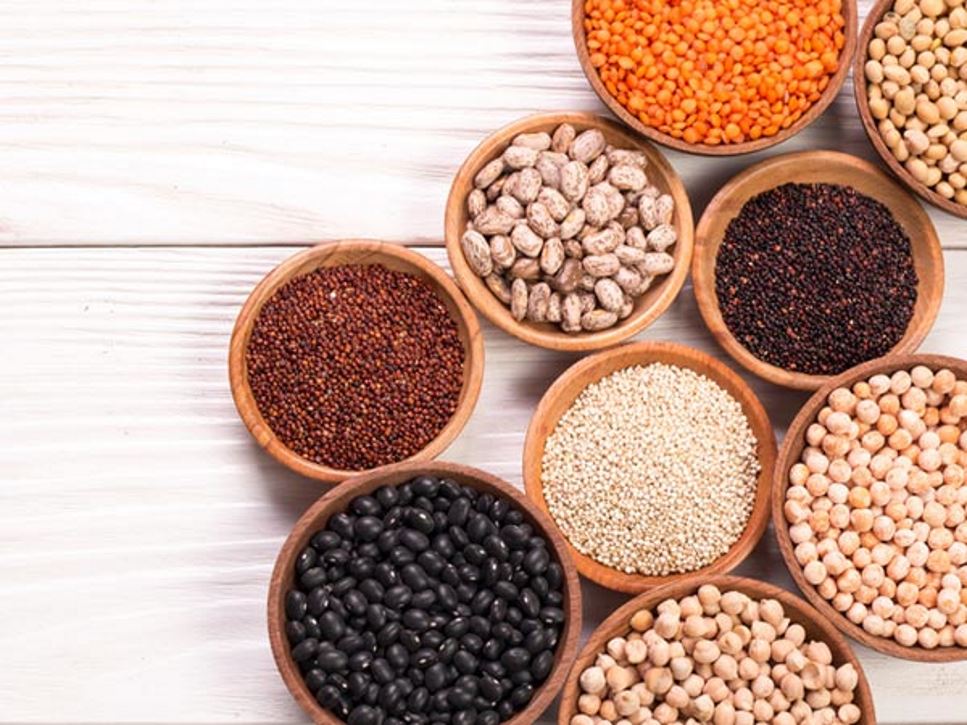A common nutrition myth is that individuals with diabetes need to avoid carbohydrates completely. While individuals with diabetes must be mindful of how many carbohydrates they eat, they don't need to avoid them altogether. Carbohydrates are the body's preferred source of fuel and food sources containing carbohydrate can offer a variety of vitamins, minerals and other nutrients.
There are three types of carbohydrate: starches, sugars and dietary fiber.
- Starches are present in plant-based foods such as potatoes, peas, corn, beans, rice and other grain products.
- Sugars occur naturally in foods such as fruit and milk, but there are also sources of added sugars which are found in highly processed foods, such as candy, cake and soft drinks.
- Dietary Fiber is an indigestible part of plant foods that may help with digestive and heart health.
Individuals with diabetes should focus on choosing carbohydrates from nutrient-rich, whole foods such as fruits, vegetables, beans, whole grains and dairy products, including low-fat or fat-free milk and yogurt. Foods and beverages with added sugars should be consumed sparingly, regardless of a diabetes diagnosis.
Spreading carbohydrate choices evenly throughout the day helps to prevent spikes and dips in blood sugar. A registered dietitian nutritionist can create a specific meal plan that harmonizes individual preferences with the special needs of someone with diabetes.
Recommendations for carbohydrate goals will vary from person to person. For someone who eats 2,000 calories a day, an RDN may recommend that one meal contains about 45 to 60 grams of carbohydrate — or three to four servings of carbohydrate. This may vary depending on how frequently a person plans to eat throughout the day.
In meal planning for diabetes, a serving of carbohydrates is equal to 15 grams of carbohydrate. Here are some examples of serving sizes, but refer to the Nutrition Facts Label whenever possible for exact amounts:
- Fresh, frozen or canned fruit:
- 1 small apple, 4-inch long extra-small banana or a medium orange
- ½ cup fruit cocktail, canned pineapple or unsweetened applesauce
- Dried fruit:
- 2 tablespoons of raisins or dried cranberries
- Milk and Milk Substitutes:
- 1 cup (8 fluid ounces) fat-free, low-fat or lactose-free milk
- 1 cup (8 fluid ounces) unsweetened or light soy beverages
- Yogurt:
- ⅔ cup (6 ounces) unsweetened or light varieties
- Cereal:
- ½ cup cooked oatmeal or grits
- ½ cup bran flakes or plain shredded wheat
- Whole grains:
- ⅓ cup cooked brown rice, quinoa or whole-wheat pasta
- Other starches:
- ½ hamburger bun or English muffin
- 1 small (6-inch) corn or flour tortilla
- Starchy vegetables:
- ½ cup mashed or boiled potatoes
- ½ cup green peas or corn
- ½ cup black, kidney, pinto or garbanzo beans
- Sweets and other carbohydrates:
- 1 tablespoon regular syrup, jam, jelly, sugar or honey
- ½ cup sugar-free pudding
- ½ cup ice cream
For both people with and without diabetes, carbohydrates play an important role in a healthful diet.
Whole foods such as fruits and vegetables, beans, whole grains, nuts and seeds provide dietary fiber, protein and nutrients to support health. Meet with a registered dietitian nutritionist to develop an individualized meal plan that works for you.
Find a Nutrition Expert
Looking for credible nutrition information and recommendations? The Academy of Nutrition and Dietetics' network of credentialed food and nutrition practitioners are ready to help!

